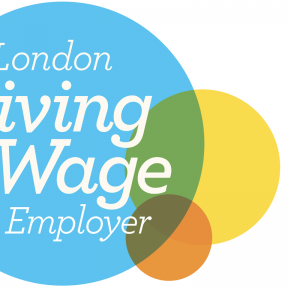When using the most common definition of low pay – that is, an hourly rate that is two thirds or below of the median rate, low pay has been falling since 2015, despite covid-19 and the measures introduced as a result.
Despite this, in-work poverty is at its highest rate ever (based on data collected by the think tank, IPPR)
Individuals on lower paid roles often struggle to progress into roles that offer better pay and working conditions, remaining stagnant in the same role until eventually leaving a different organisation.
It is therefore important to consider the role your organisation can play to support employees at the bottom end of the income scale to move upwards.
-
Employee ValueIndividuals in low paid roles as often frontline staff, individuals far away from central office. Individuals in these roles often report not feeling valued by their employer, as they are deemed low-skilled and replaceable. Staff who don’t feel valued are likely to be less productive in their roles, and more likely to feel stuck.
-
Job vs CareerIn the workplace, there is often a difference of opinion in how individuals view their work. Individuals in lower paid roles tend to be more ambivalent and view work as something they must do (but don’t particularly enjoy) rather than something that they are deeply passionate about.
It is important to recognise a distinction some staff members may make about their work -
Line ManagementIndividuals in lower paid roles tend to have more distant line managers, who provide less opportunities for 1-2-1 feedback. As a result, development opportunities tend to not be promoted to frontline staff effectively, as they as often sent generically and not targeted at staff who may need or want to develop skills in a particular area.
-
Recognise BarriersEven if as an organisation you offer plenty of opportunities for personal and professional development, it is important to recognise that individuals in lower paid roles are less likely to voluntary take up opportunities that other staff members. For instance, younger graduates are most likely than other staff members to take part in training opportunities and webinars.
You can read more about barriers around training and development in the section dedicated here.
Importance of staff pay
A living wage is one that gives people enough to get by. In short, it an hourly rate considered to be enough for essential needs such housing, clothing and good. It also allows for some discretionary income and includes enough provision to cover unexpected events.
We encourage all organisations to pay staff the living wage for their area.

Why you should pay above the living wage…
-
Cost of living is increasingPaying at the level of the living wage ignores that costs may increase drastically over a year.
With increasing food costs and utility bills, individuals in and around the base level may find themselves dragged into in-work poverty as large increases in expenditure build up. -
Aids recruitmentIndividuals looking for new work will take note of employers who are paying the best salaries.
-
Improves retentionPut simply, staff who are happy spend less time applying and interviewing for higher paid roles elsewhere.
-
Increases productivityFollowing on from the above, longer serving staff members are on average more productive, as individuals become more adept at their roles as time progresses.
